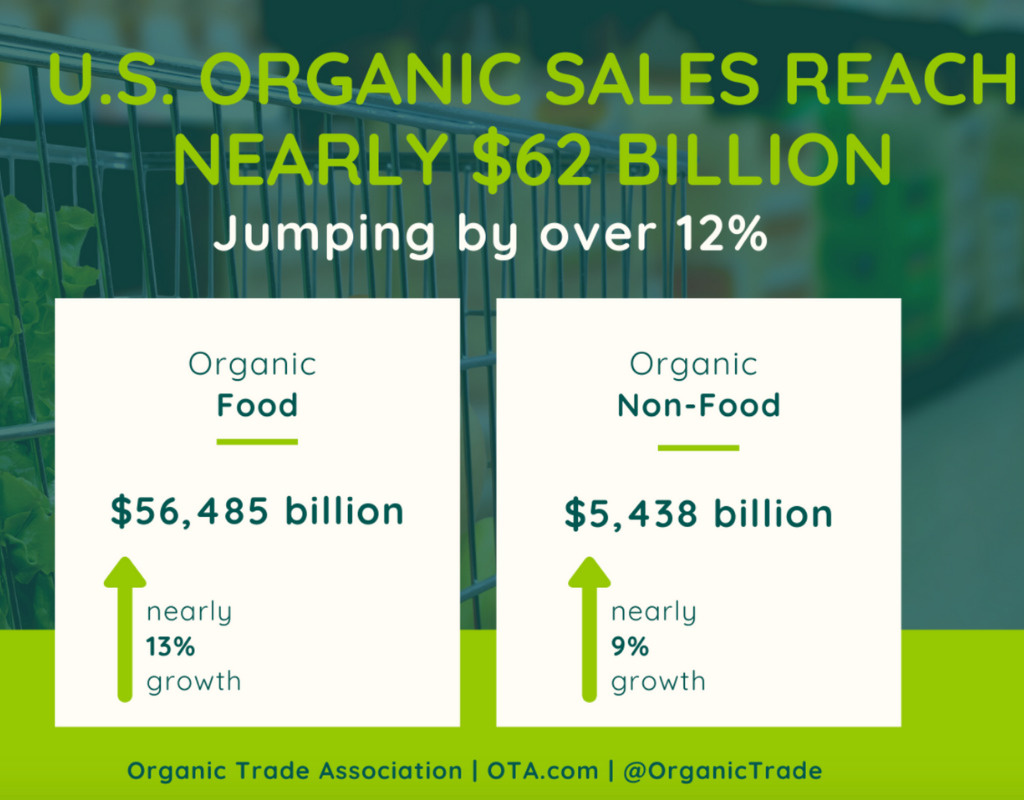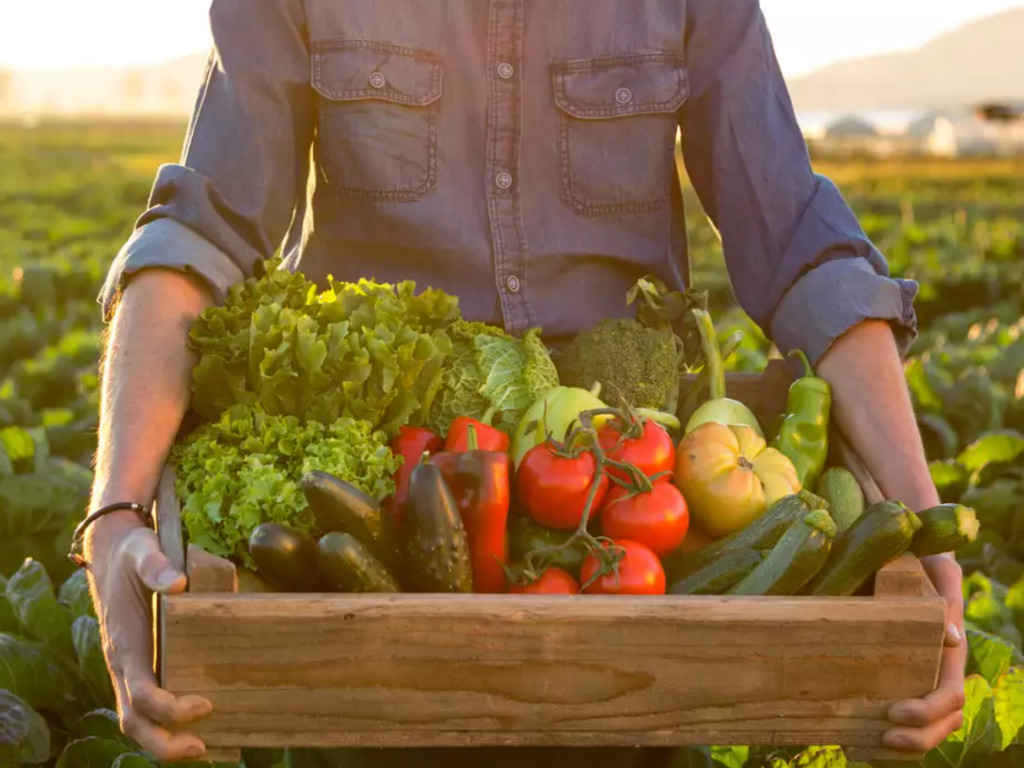5 Mins Read
According to a new survey released by the Organic Trade Association(OTA), U.S. organic sales of food and non-food products skyrocketed to a new high last year, recording a 12.4% jump, marking the first time that total organic sales have crossed the US$60 billion mark, highlighting a growth rate of more than double the 2019 pace of 5%.
The membership-based business association OTA, which focuses on supporting the organic business community and industry in North America, released its 2021 Organic Industry Survey and the results are impressive. 2020 data shows U.S. organic sales soared to a new high last year, with the report citing the pandemic as a major factor, especially given that a good amount of consumers who were struck at home were now cooking themselves to a great greater degree.
According to the report, demand reached near-record levels as U.S. organic food sales climbed a new high of US$56.4 billion last year, a 12.8 % year-on-year jump, with almost 6% of all food sold in the country being certified organic.
The pandemic pushed consumers to stop ordering from restaurants, carry out or purchase groceries, instead, using online grocery shopping to meet their daily needs, with a boost for new foods tried and and families eating up to three meals a day at home.
Sharing the new data at the Organic Day organized by Natural Products Expo West, OTA CEO and executive director Laura Batcha said that the pandemic is behind drastic changes in consumer behaviour. “We’ve been eating at home with our families, and often cooking three meals a day. Good, healthy food has never been more important, and consumers have increasingly sought out the ‘Organic’ label. Organic purchases have skyrocketed as shoppers choose high-quality organic to feed and nourish their families.”
In addition, consumers were committed to buying healthier foods, with fresh produce sales rising 11% and totalling US$18.2 million. Frozen and canned fruits and vegetable sales alone jumped by over 28%, and frozen, canned and dried organic food product sales brought in over US$20.4 billion. As of 2020, 15% of all fruits and vegetables sold in the U.S. are certified organic.

Good, healthy food has never been more important, and consumers have increasingly sought out the Organic label. Organic purchases have skyrocketed as shoppers choose high-quality organic to feed and nourish their families
Laura Batcha, CEO and executive director of the OTA
The main growth driver in 2020 was stocking pantries, and data shows that consumers took a huge liking to bread making and cookie baking with sales of organic flours and baked goods growing by 30%. Consumers even switched to “meal support” products with the US$2.4 billion condiments categor, which includes sales of sauces and spices, recording a growth rate of 31%, and organic spice sales soaring by 51%, over thrice the 15% growth rate seen in 2019.
Director of education & insights for the OTA, Angela Jagiello, said: “The only thing that constrained growth in the organic food sector was supply. Across all the organic categories, growth was limited by supply, causing producers, distributors, retailers and brands to wonder where numbers would have peaked if supply could have been met!”
With respect to animal-based products, the smallest of the organic categories at US$1.7 billion, meat, poultry and fish, had the second highest growth rate of around 25%.
Read: Organic Meat Causes Just As Much Climate Damage As Conventional Version, Scientists Warn
Jagiello, who is leading the coordination of the survey for the association, said that due to the pandemic, not only ingredients were taxed, but even packaging like bottle lids, pouches, corrugated cardboard, bottles for dietary supplements was in short supply, not to mention that a lack of workers and drivers to transport the products made it extremely difficult for producers to meet consumer demand.
Though the organic non-food category did not record the same kind of growth as organic food, its growth rate has been stable compared to previous years with sales reaching US$5.4 billion, marking an 8.5% increase, slightly below the 9.2% reported in 2019.
What’s come out of COVID is a renewed awareness of the importance of maintaining our health, and the important role of nutritious food. For more and more consumers, that means organic
Laura Batcha, CEO and executive director of the OTA
Going forward, the association mentioned that though the growth in organic food sales might not continue at the same rate that it did last year, it is still expected to record a strong growth path in 2021 and many consumers will still continue to cook more meals at home.
Batcha concluded: “We’ve seen a great many changes during the pandemic, and some of them are here to stay. What’s come out of COVID is a renewed awareness of the importance of maintaining our health, and the important role of nutritious food. For more and more consumers, that means organic. We’ll be eating in restaurants again, but many of us will also be eating and cooking more at home. We’ll see more organic everywhere – in the stores and on our plates.”
Last year in the midst of the pandemic, the OTA had revealed a 50% increase in organic produce sales given that consumers were starting to prioritise food nutrition and safety.
Recently, crucial regulatory and policy changes in the U.S. and E.U. are expected to give a major boost to organic agriculture with the E.U. outlining an action plan to accelerate organic production to 25% of its agricultural land by 2030, and a U.S. federal court ruling has gone one step further to declare that hydroponic produce (crops grown without the need for soil and instead uses mineral nutrient solutions) can be certified as organic.
Research shows that organic farming can play a major role in tackling global warming given that the practice could lead to boosting carbon sequestration in the soil by nearly double-digits.
Lead image courtesy of Getty Images Plus.




